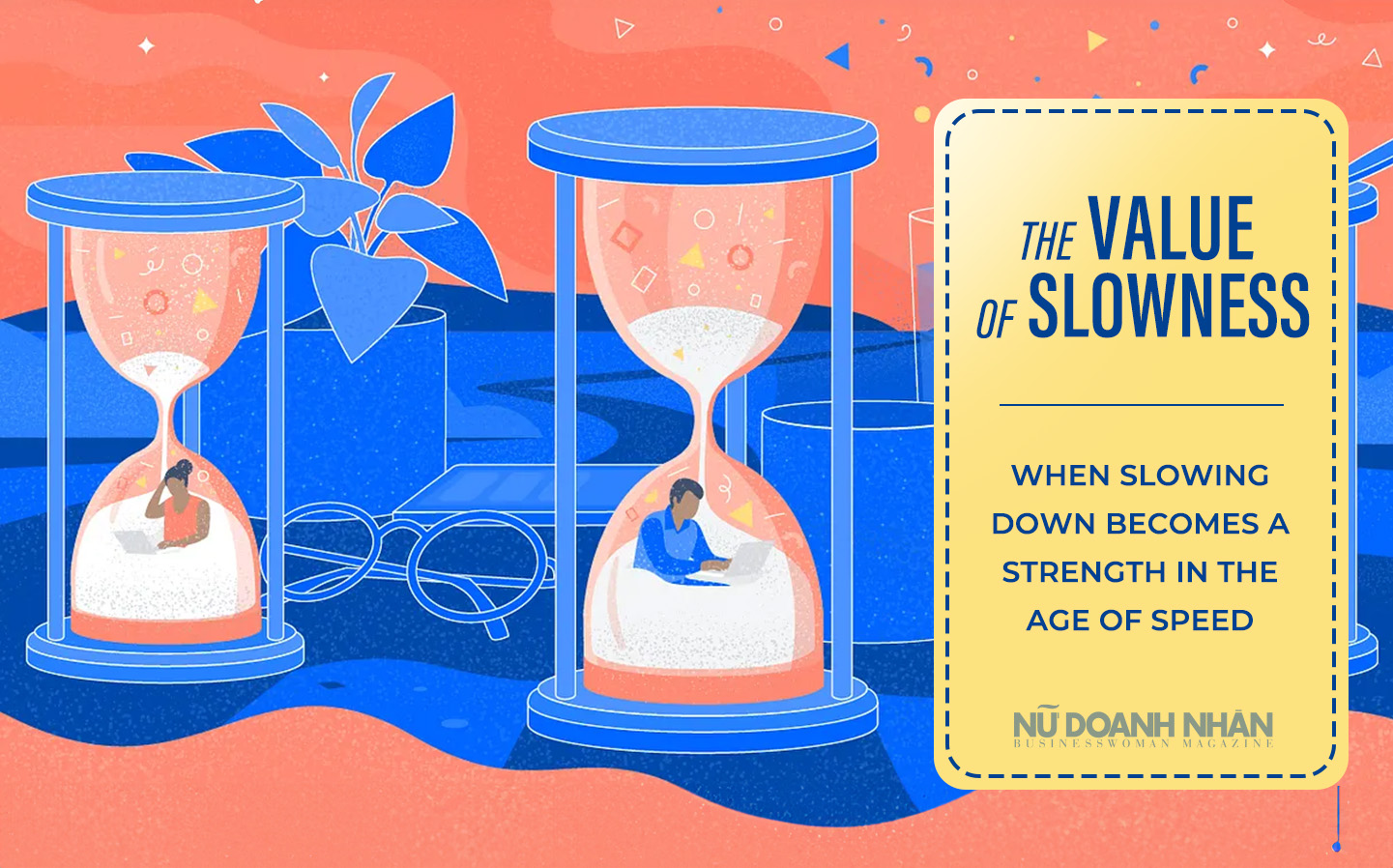There is a paradox of our times: the faster the world becomes, the more we long to slow down. The more advanced technology grows, the stronger the desire to return to simplicity and depth. And in an age where everything seems to be in a race against time, slowness has emerged as a new form of power, the power of clarity, resilience, and self-mastery.
Original Vietnamese version available here
Đọc bài viết tiếng Việt tại đây

We are living in a society addicted to speed. Emails must be answered within minutes. Data must be processed in an instant. Meetings follow one another as though the clock has no pause. On social media, speed is victory, those who are faster prevail, those who are slower are forgotten.
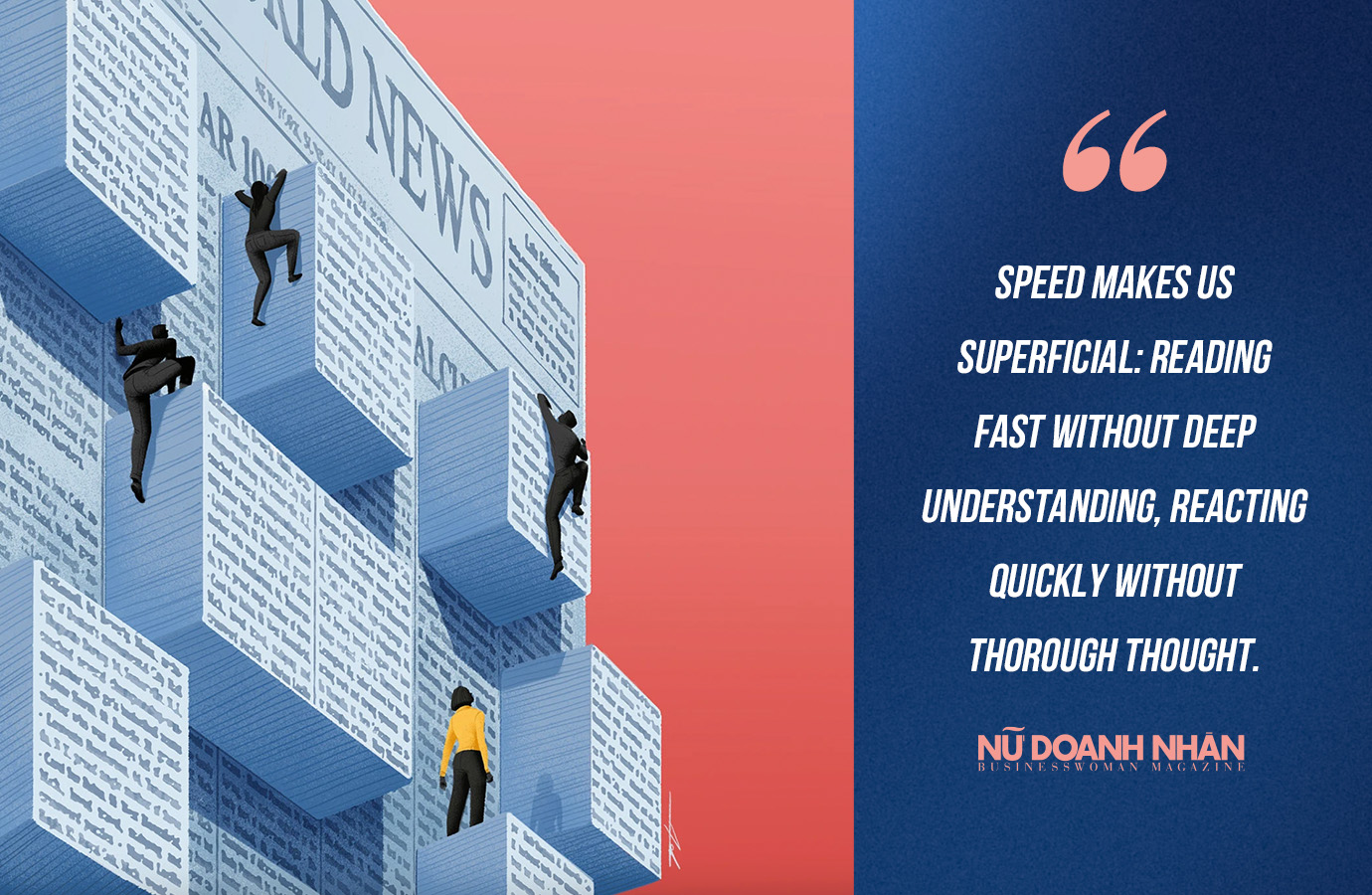
Yet speed, when placed in the wrong context, can become an invisible pressure. A CEO may make a hasty decision to “catch the trend”, only to pay the price of inaccuracy and enormous risk. An employee may produce ten reports a day, but lose the depth of analysis – the very element that creates true value.
Speed makes us superficial: reading fast without deep understanding, reacting quickly without thorough thought.

What must be emphasised is this: slowness is not laziness, nor is it procrastination. It is a deliberate attitude to life. To go slow is to observe, to feel, to make decisions with roots and depth. In craftsmanship, every stitch requires patience. In haute cuisine, a dish may take hours to prepare. In leadership, a long-term strategy cannot be decided in a hasty meeting. Slowness is the foundation of refinement. No masterpiece has ever been created in haste.
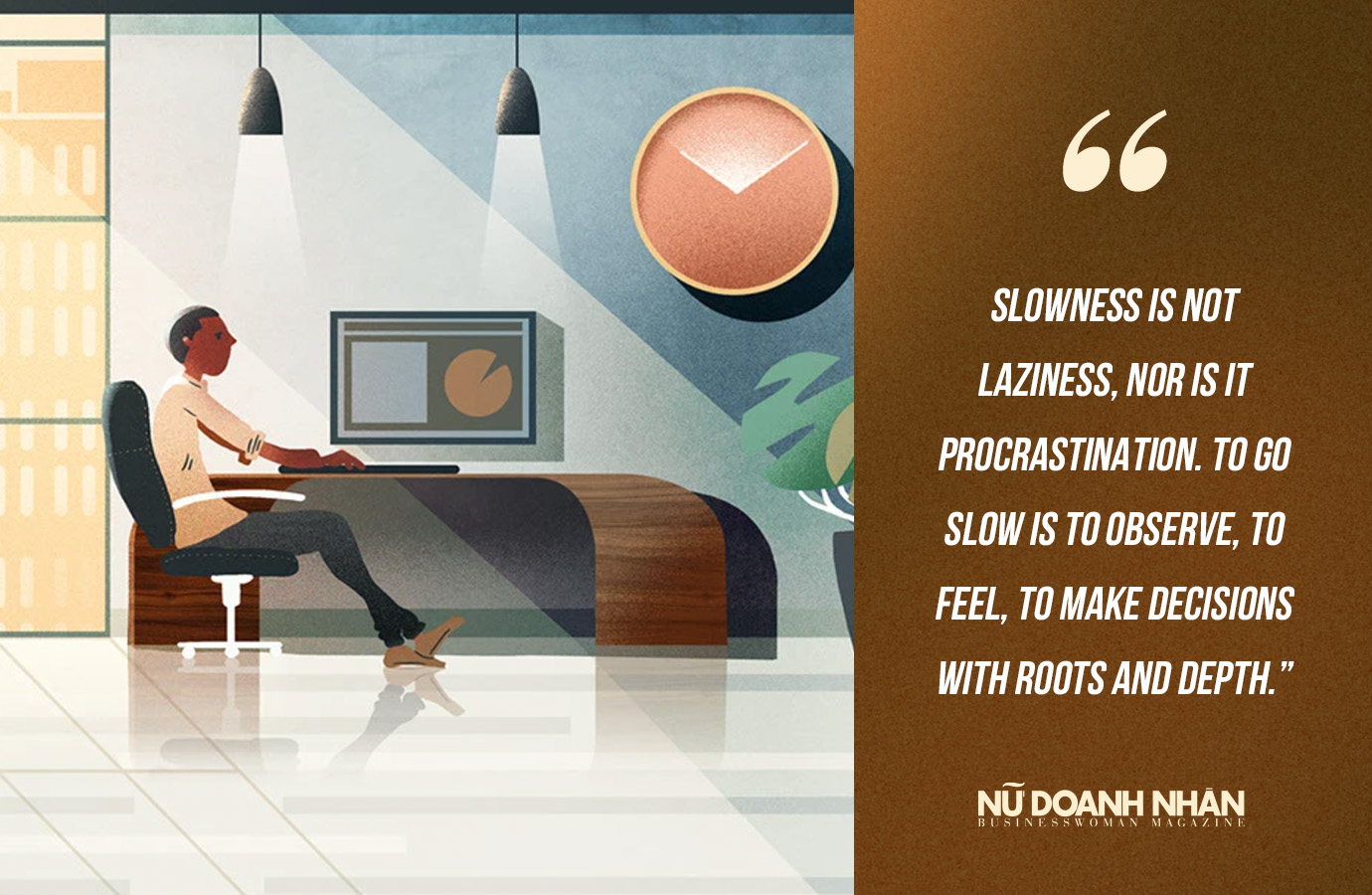
Evidence in global business
If we look at luxury brands, the message is clear: slowness is a business strategy.
- Hermès: For over 180 years, the house has remained steadfast in producing handcrafted items in limited numbers. Scarcity creates value. A Birkin bag is not purchased simply for its beauty, but because it is the result of hundreds of hours of meticulous labour.
- Rolex: Despite overwhelming demand, Rolex maintains a measured pace of production instead of chasing volume. Each watch becomes a symbol of durability and prestige.
- Apple: Contrary to its image of technological speed, many of Apple’s strategic decisions are incubated over years – from design to user experience – instead of shortcuts favoured by other firms.
In Vietnam, the F&B sector has witnessed boutique cafés and artisanal patisseries on the rise. They do not choose the model of rapid chain expansion, but focus instead on personalised, refined experiences. Their “slowness” is precisely what sets them apart.

At the World Economic Forum in Davos 2025, many leaders emphasised mindful leadership. This message was not a passing wellness trend, but a necessity of the age. A policy decision can affect millions. An investment strategy can shape an entire economy. In such a context, taking time to pause and reflect is not a luxury, it is a responsibility. Many top CEOs admit they have changed habits: from chasing back-to-back meetings to leaving “white space” in their calendars to read, to learn, and to think. It is these pauses that enable wiser, more humane decisions.
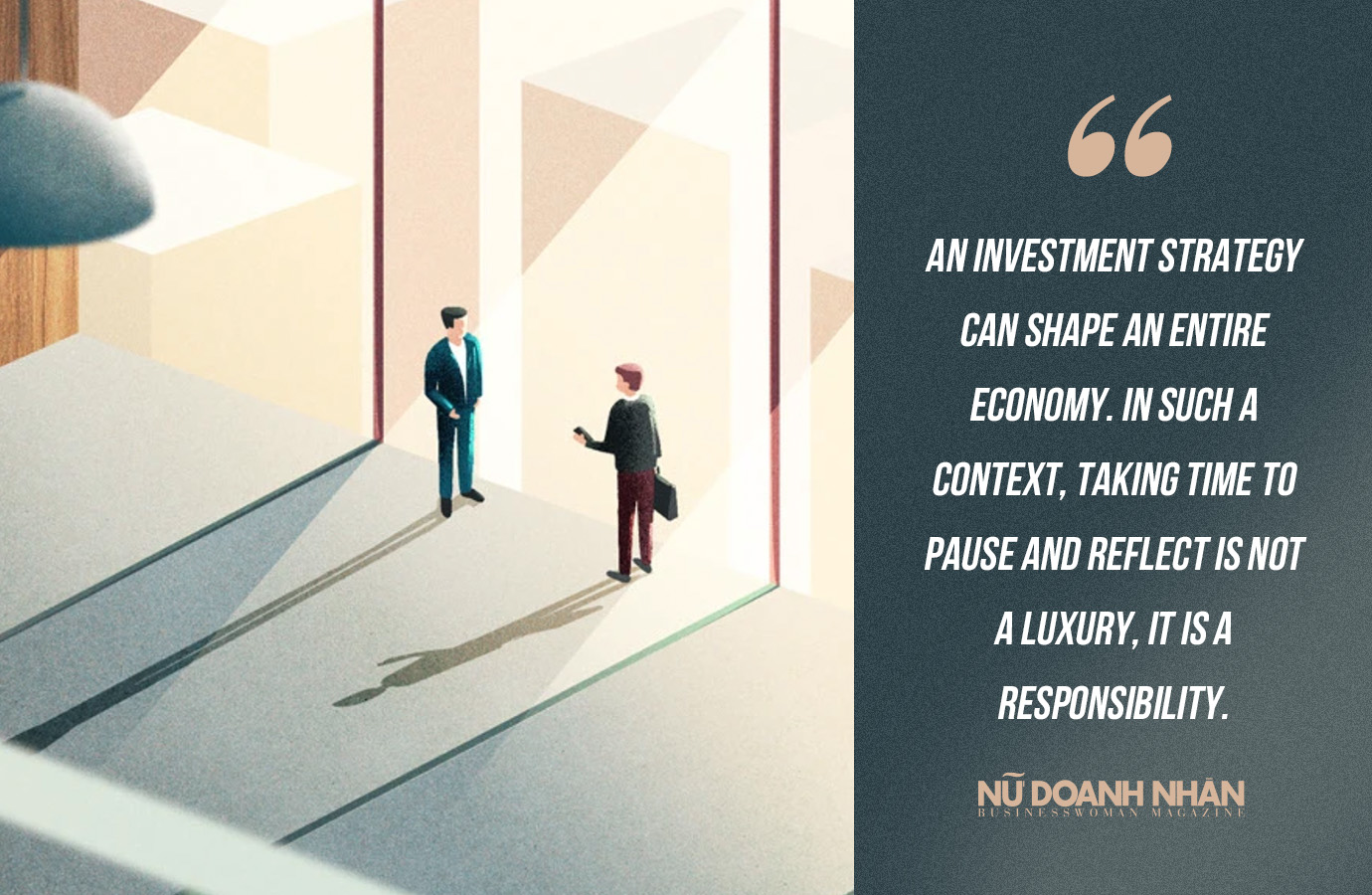

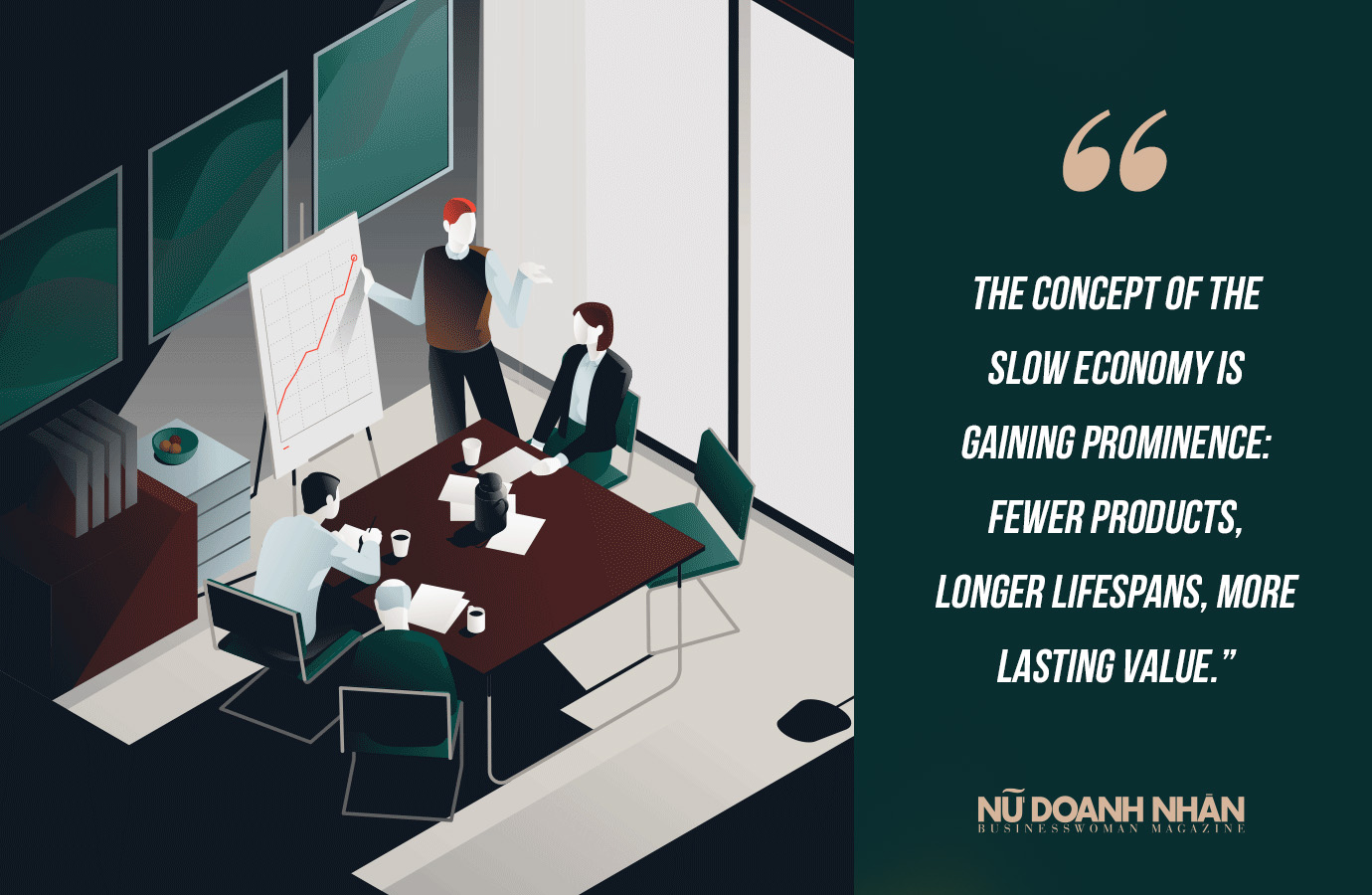
The concept of the slow economy is gaining prominence: fewer products, longer lifespans, more lasting value. In fashion, the shift is clear: from fast fashion (cheap, disposable) to sustainable fashion – fewer, but better. In food, the rise of farm-to-table and organic movements reflect “slow economy”: transparent, natural, carefully nurtured. In education, slow learning is being encouraged – learning deeply rather than quickly, allowing knowledge to become part of character. All these point to one truth: slowness is returning as a new pillar of sustainable development.

For business leaders, to slow down often means to rest in the truest sense. A retreat, a morning meditation, or an afternoon with family is not a waste of time, but an investment in mental energy. Research shows that leaders who know how to pause are often the most creative, the most connected. Slowness is also the way we return to ourselves. In a noisy world, those who can carve out moments of silence are the ones who truly own their lives.
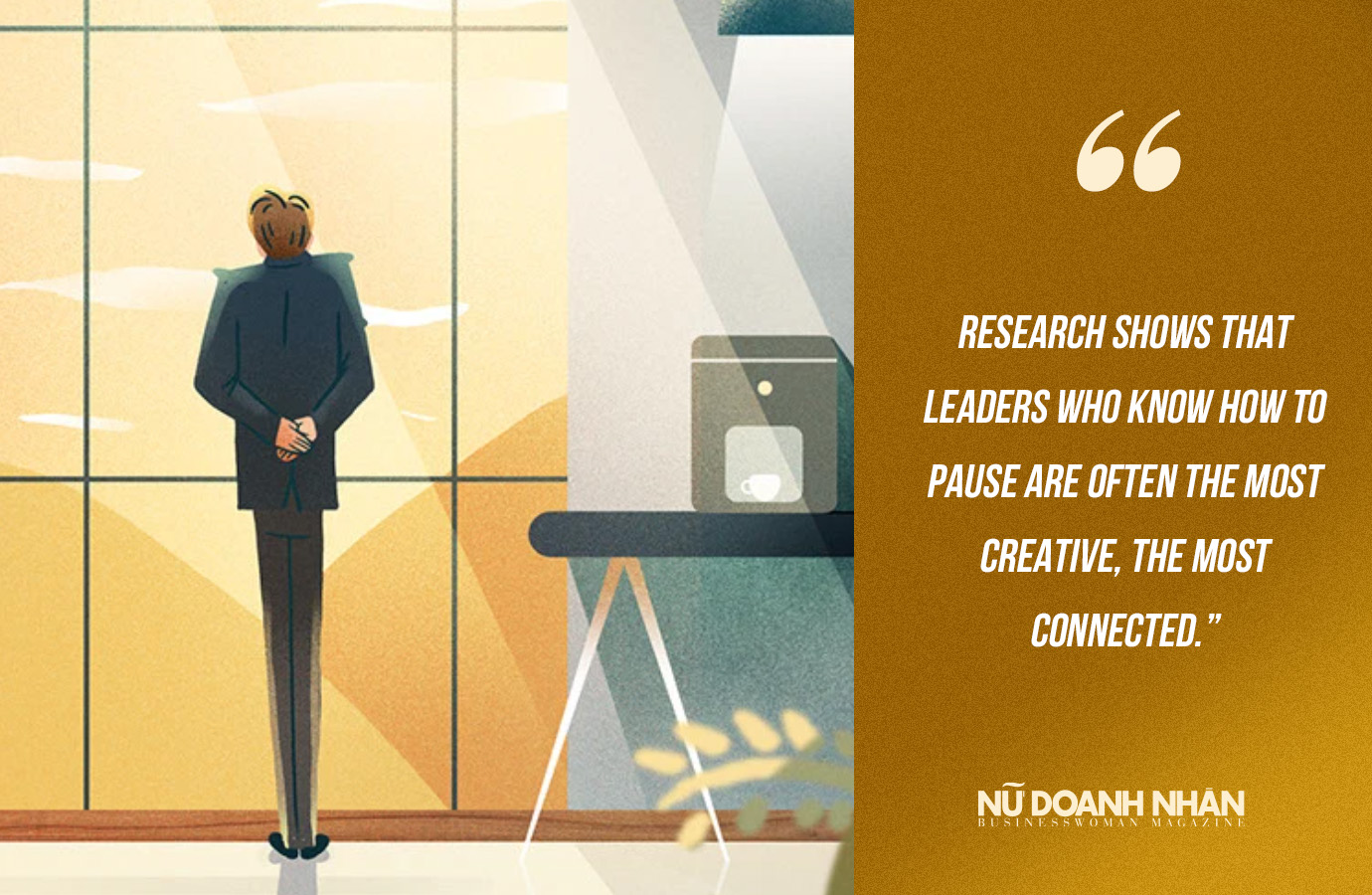

Money can be earned. Technology can be acquired. But the time to live slowly, that is a luxury. Those who dare to embrace slowness are those who possess true freedom. They are not swept away by the current, but know how to create their own rhythm. And then we realise: slowness is not merely a personal choice, but a social declaration. It tells us that we are not defined by speed, but by depth.
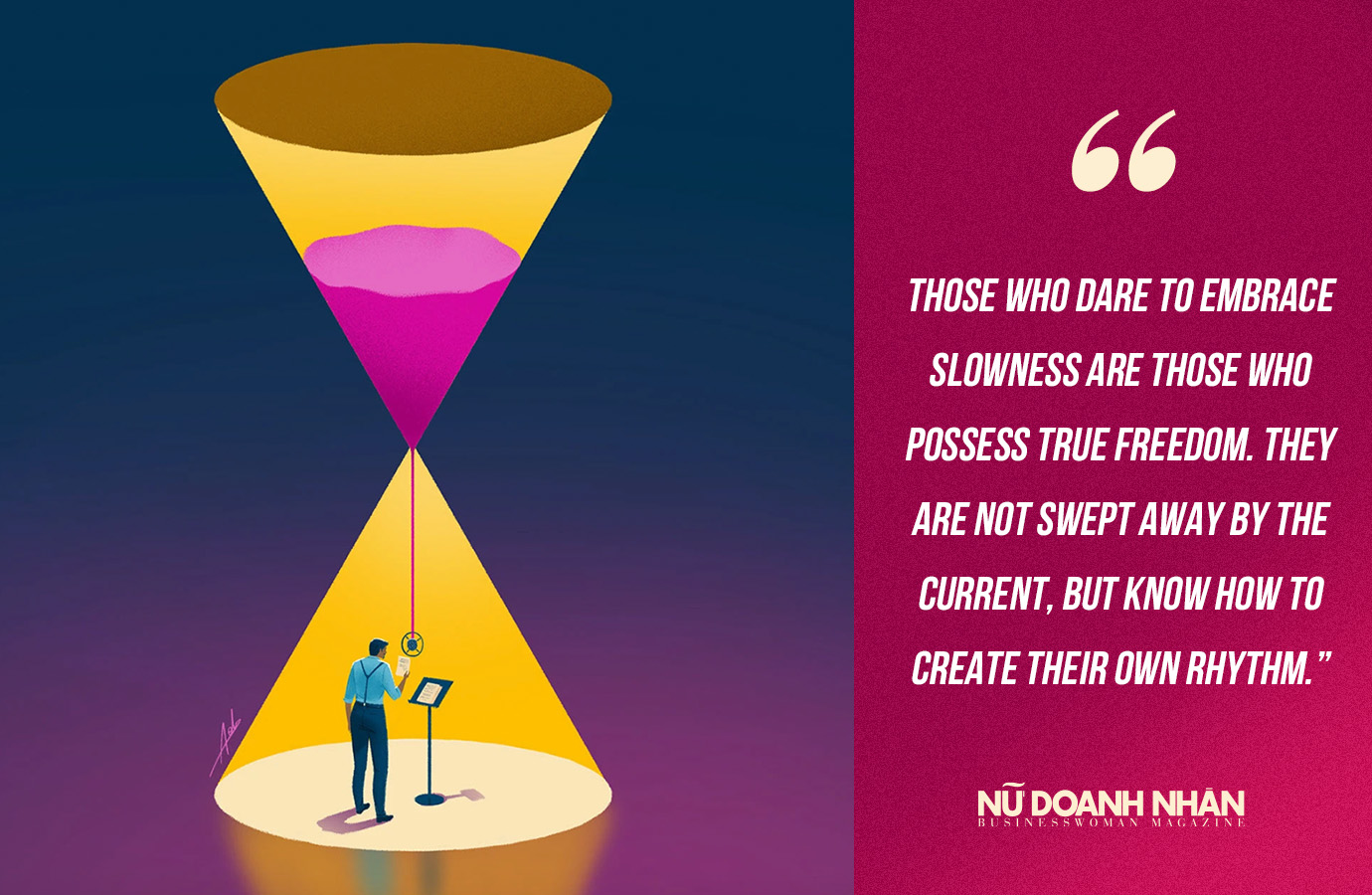
| In a world of haste, slowness does not mean falling behind. It is courage, autonomy, the ability to see further and go further. Slowness is the soft power of the age of speed – where success is measured not by how fast we finish, but by the depth of the value we create. |
Text: MINH NGUYEN

Read more:
